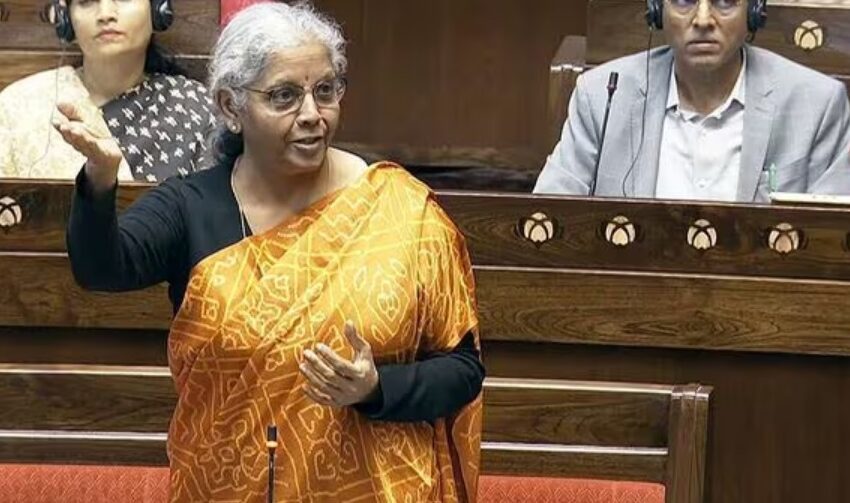
India to Remain World’s Fastest Growing Economy Despite Global Challenges: FM Sitharaman in Parliament
There are issues which are of global concern which also have an impact on our own budget making, pointed the Union Finance Minister
Union Finance Minister Nirmala Sitharaman said in Lok Sabha Tuesday that the Indian economy is seeing a “speedy rebound” on account of strong economic foundation and that the country will continue to remain the fastest growing economy as she countered the Opposition on unemployment, capex, and inflation.
Replying to the general discussion on the Union Budget, Sitharaman said this Budget has come at a time of “immense uncertainties and the changed global macro environment makes it challenging.”
“There are issues which are of global concern which also have an impact on our own budget making. There is a continuation of global conflict in the Middle East, Russia-Ukraine war continues, stagnation in global GDP and sticky inflation in the emerging markets are all vitiating the atmosphere in entire developing economies,” she said.
“In three years prior to 2024-25, the GDP growth rate averaged about 8%. Only in two of the last 12 quarters has growth rate touched 5.4% or remains below it… on account of strong economic foundation, a speedy rebound is happening and we will take measures to keep our economy growing fastest as in the last few years,” she said.
On the Opposition’s concerns regarding unemployment, Sitharaman cited data from the annual report of Periodic Labour Force Survey 2023-24 and said that the Labour Force Participation Rate has increased from 49.8% in 2017-18 to 60% in 2023-24 and the unemployment rate has declined from 6% in 2017-18 to 3.2% in 2023-24.
On the Opposition’s observations that the paradigm has shifted from capital expenditure, Sitharaman said that the effective capital expenditure is projected at 15.48 lakh crore in 2025-26 as against 13.188 lakh crore in RE of 2024-25.
“So, the effective capital expenditure is 4.3% of GDP, fiscal deficit 4.4% of GDP. What does it indicate? It indicates that the government is using almost the entire borrowed resources for financing effective capital expenditure. So, the borrowings are going for revenue expenditure or committed expenditure or any of those kinds. It is going for creating capital assets only,” she said.
She said private final consumption expenditure is expected to grow 7.3% in the current fiscal, driven by good rural demand. The private final consumption expenditure is estimated to be 61.8% of the nominal GDP, highest since 2002-03, she said.
‘GST rates only cut over time, not hiked…’
Underlining that the Goods and Services Tax has not been increased on “even one item”, Finance Minister Nirmala Sitharaman told the Rajya Sabha Tuesday that the GST Council was working to see where rate cuts were possible and also to streamline rate slabs.
“The GST Council has gone into great detail looking item by item to see where rate reduction can happen and, equally, four rates or three rates or two rates or collapse into one rate is also being discussed,” she said.
Sitharaman said“At the point of GST’s introduction, on average, 15.8% tax could have been levied without additionally burdening the consumer. If that was the rate at which the GST rates were brought in, today, the rate has come down to 11.3%.”
“I would like to take this opportunity to dispel this thought that after GST, rates have gone up… Not at all…not even one item…,” she said.



